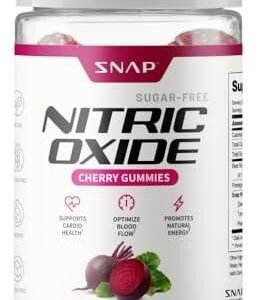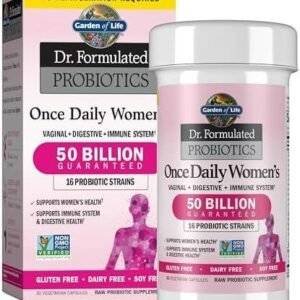In the realm of endurance sports, where the distinction between peak performance and fatigue can be as thin as the line separating victory from defeat, the role of hydration emerges as a critical determinant of success. While athletes are often attuned to the rigors of training and the strategies of nutrition, the importance of maintaining optimal hydration levels frequently remains underappreciated. This oversight can lead to a significant decline in performance, as even mild dehydration can negatively impact physiological functions, cognitive clarity, and overall stamina. In recent years, hydration supplements have gained prominence, offering specialized solutions designed to replenish fluids and electrolytes efficiently during prolonged physical exertion. This article delves into the essential role of these hydration supplements, examining their scientific underpinnings, the physiological mechanisms through which they enhance endurance performance, and their practical applications in training and competition settings. By exploring current research and expert insights, we aim to illuminate the vital connection between hydration and endurance, fostering a deeper understanding of how athletes can optimize their performance through informed hydration strategies.
Table of Contents
- Understanding the Physiological Impact of Dehydration on Athletic Performance
- Key Ingredients in Hydration Supplements and Their Functional Benefits
- Optimal Timing and Dosage Strategies for Effective Hydration Supplementation
- Comparative Analysis of Hydration Products: Selecting the Right Supplement for Endurance Events
- Future Outlook
Understanding the Physiological Impact of Dehydration on Athletic Performance
The physiological consequences of dehydration during athletic performance are profound and multifaceted. When an athlete loses water through sweat without adequate rehydration, several critical body functions are disrupted. These include:
- Decreased Blood Volume: Reduced plasma volume can lead to increased heart rate and lower stroke volume during exercise.
- Impaired Thermoregulation: A dehydrated state hampers the body’s ability to dissipate heat, increasing the risk of heat exhaustion and heat stroke.
- Muscle Cramping: Dehydration can lead to electrolyte imbalances, which are often cited as a primary cause of muscle cramps.
Furthermore, dehydration directly impacts athletic performance metrics, which can result in:
| Performance Metrics | Impact of Dehydration |
|---|---|
| Endurance | Decreased by 20-30% with as little as 2% body weight loss |
| Cognitive Function | Impaired decision-making and concentration |
| Recovery | Prolonged recovery times and increased fatigue |
To mitigate these effects, athletes and coaches must prioritize hydration strategies and utilize hydration supplements. Properly balanced formulas can replenish lost electrolytes, enhance fluid retention, and optimize overall performance, ensuring that athletes maintain their peak physical capability throughout their endurance events.
Key Ingredients in Hydration Supplements and Their Functional Benefits
Hydration supplements are crafted with a blend of specific ingredients that optimize fluid balance and enhance performance during endurance activities. Among these, electrolytes such as sodium, potassium, and magnesium play a crucial role. They help maintain fluid balance in the body by regulating the movement of water into and out of cells, ensuring that athletes stay hydrated. Additionally, these essential minerals are vital for muscle function; a decrease in electrolyte levels may lead to cramping and fatigue. Other important ingredients include carbohydrates, which not only provide a quick source of energy but also aid in water absorption in the intestines, allowing for more effective rehydration.
Many hydration products also incorporate amino acids and B vitamins to support overall performance and recovery. Amino acids, particularly branched-chain amino acids (BCAAs), can enhance endurance by reducing exercise-induced fatigue and muscle breakdown. On the other hand, B vitamins are essential for energy production, supporting the metabolic processes involved in endurance activities. The effectiveness of these hydration supplements can be summarized succinctly in the following table:
| Ingredient | Functional Benefit |
|---|---|
| Electrolytes | Maintain fluid balance and prevent muscle cramping |
| Carbohydrates | Provide quick energy and improve rehydration |
| Amino Acids | Reduce fatigue and support muscle recovery |
| B Vitamins | Boost energy production and metabolic efficiency |
Optimal Timing and Dosage Strategies for Effective Hydration Supplementation
When considering hydration supplementation for endurance performance, the timing of intake plays a pivotal role in maximizing benefits. Consuming hydration supplements approximately 30 to 60 minutes before exercise can help to prepare the body for the physical demands ahead. This pre-hydration phase aids in optimizing fluid balance and ensuring essential electrolytes are readily available. During prolonged activities, such as marathons or triathlons, it’s crucial to maintain hydration levels by consuming additional supplements at regular intervals, ideally every 15 to 30 minutes. This strategy helps replenish lost fluids and electrolytes, thus sustaining performance and preventing fatigue.
Moreover, the dosage of hydration supplements must be tailored to individual needs, taking into consideration factors like sweat rate, environmental conditions, and exercise intensity. A general guideline for endurance athletes is to consume between 400 to 800 milliliters of a hydration solution per hour, which provides an adequate balance of fluids and electrolytes. To better illustrate effective hydration strategies, consider the table below, which outlines recommended dosages based on exercise duration:
| Exercise Duration | Recommended Hydration Supplement Intake |
|---|---|
| 1 Hour | 400 mL |
| 1-2 Hours | 600 mL |
| 2-3 Hours | 800 mL |
| 3+ Hours | 1000 mL+ |
Comparative Analysis of Hydration Products: Selecting the Right Supplement for Endurance Events
When it comes to endurance events, the choice of hydration supplements can significantly impact an athlete’s performance. Various products offer unique formulations designed to replenish lost fluids and electrolytes while delivering essential carbohydrates to fuel prolonged training sessions or competitions. To find the right match, athletes should consider the following factors:
- Electrolyte Content: Look for products containing sodium, potassium, magnesium, and calcium, which are integral for maintaining fluid balance and muscle function.
- Carbohydrate Type: Different forms of carbohydrates, such as glucose, fructose, or maltodextrin, can affect energy availability. Selecting a blend may optimize absorption and energy delivery.
- Flavoring and Ingredients: A palatable product encourages hydration during events. It’s important to assess the inclusion of artificial sweeteners or flavors that may not be suitable for every athlete.
- Form of Supplement: Options include powders, ready-to-drink beverages, or tablets. Each has its convenience and absorption characteristics
To further simplify decision-making, here is a comparison table of popular hydration products commonly used in endurance sports:
| Product | Electrolyte Levels | Carbohydrate Source | Calories per Serving |
|---|---|---|---|
| Electrolyte Drink Mix A | High | Maltodextrin | 100 |
| Ready-to-Drink Beverage B | Moderate | Fructose | 120 |
| Tablet C | Low | Glucose | 20 |
| Gels D | Moderate | Combination | 90 |
This comparative analysis shows that no single hydration product is universally optimal. Each product brings distinct advantages and features that cater to specific performance needs and personal preferences. Athletes are encouraged to experiment with different options during training to find the supplement that best supports their endurance endeavors.
Future Outlook
the significance of hydration supplements in enhancing endurance performance cannot be overstated. As athletes push their physical limits, the prevention of dehydration and the maintenance of electrolyte balance become critical to sustaining energy levels and optimizing overall performance. The analytical evidence underscores the necessity of not only consuming adequate fluids but also strategically incorporating hydration supplements to address specific physiological needs during prolonged exercise.
As we have explored, these supplements play a vital role in fortifying the body against fatigue, cramping, and potential heat-related illnesses. Emphasizing the use of scientifically-backed hydration strategies can empower athletes at all levels to make informed decisions that elevate their training and competitive outcomes.
Future research may further illuminate the intricate relationship between hydration and performance, offering more tailored solutions for athletes. However, the current understanding highlights that hydration supplements are not merely auxiliary aids; they are integral components of a comprehensive performance strategy. As we move forward, a commitment to education on hydration practices will be essential in promoting both the health and success of endurance athletes.





